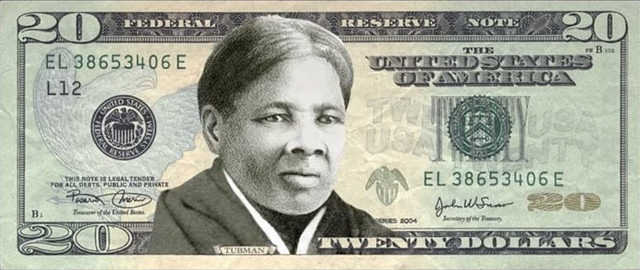On April 20, 2016 Treasury Secretary Jack Lew announced the decision to replace Andrew Jackson with the abolitionist Harriet Tubman on the $20 bill. While Tubman’s representation on American money would break the currency glass ceiling for women on paper, it would still cheapen her image and legacy and perpetuate the facade that we live in a post-racial society where all are truly equal.
Admirable american
When news initially broke about a conductor of the Underground Railroad and former slave replacing a slave-owning president responsible for the genocide of the indigenous population, I was surprised to see such a momentous change occur during my lifetime. Tubman is easily in my book of the country’s most admirable Americans.
Born into slavery, Tubman would later become a notable abolitionist, feminist, humanitarian and spy for the U.S. Army during the Civil War. Her life story cannot be sufficiently told in a single article and a historian’s pen or a novelist’s typewriter would probably never capture the pain and suffering she endured. Tubman is truly the face of adversity and her life narrative is the manifestation of what the playwright James Baldwin meant when he said, “American history is longer, larger, more various, more beautiful, and more terrible than anything anyone has ever said about it.”
Education should honor Tubman’s life rather than plastering her face on the iconic emulation of American Capitalism. When African-American boys and men are being shot in the streets of American cities by an increasingly militarized police and surveillance state, how can we ever live in a country whose constitution declares “all men are created equal?” How can we say we live in a truly equal society when the school-to-prison pipeline continues to afflict communities of color. Or when streets bearing the name of MLK are deemed unsafe for children to play in because the government would rather serve the interests of their corporate benefactors?
Subverting oppression
Mental health social worker and feminist writer Feminista Jones states in a Washington Post article on how Tubman “dedicated much of her life to subverting the system of forced labor and oppression that built America’s economy.” American capitalism was built on the backs of slaves and the settler-colonialism of the indigenous population. Journalist Eric Herschthal writes in The Daily Beast on how sophisticated financial instruments and the “emergence of modern capitalism made slavery’s growth possible.” Slavery considered humans commodities.
To this day, the African-American community has been brutally disenfranchised by a racist and failed war on drugs and mass incarceration. Ohio State professor Michelle Alexander reported about this in her recent New York Times Bestseller, “The New Jim Crow: Mass Incarceration in the Age of Colorblindness.” Under the private-prison industry, individuals are considered commodities. Money-saturated lobbying forces use their Washington connections to ensure private prisons such as the GEO group continue to profit off the world’s largest prison population.
Institutionalized and structural racism still exists. According to writer Steven W. Thrasher, “The roots of capitalist American slavery are not just found in long shuttered tobacco and cotton plantations, but in the entire business structure of the U.S. economy.” Tubman died penniless — her life dictated by the idea that she could have been bought and sold by the very bill we are going to put her face on.







